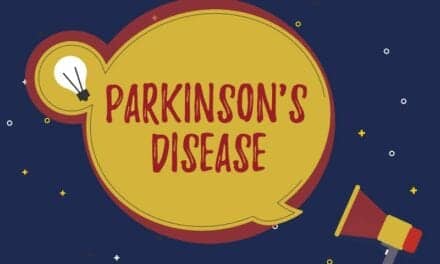Parkinson & Movement Disorder (PMD) Alliance, in partnership with Neurocrine Biosciences, a leading neuroscience-focused biopharmaceutical company committed to meeting the needs of people with complex and debilitating disorders, announce results from the Survey Assessment: Impact of OFF Time on People with Parkinson’s Disease and Their Care Partners.
Findings reveal that despite a majority of these people with Parkinson’s disease (PD) and their care partners being significantly impacted by OFF time—a period of time when PD symptoms return between regular doses of carbidopa/levodopa medication—there is a general acceptance that the emergence of OFF time is part of the disease, and they may not be aware of the availability and use of adjunctive treatment options to address return of PD symptoms.
The survey was conducted by Ipsos, one of the largest market research and polling companies globally.
“At PMD Alliance, we are passionate about connecting directly with the PD community about their experiences, challenges, and strategies to live well after a diagnosis. We hear again and again about the impact of OFF time, from both people living with the disease, and their loved ones and care partners,” said Andrea Merriam, Acting CEO, PMD Alliance. “Good communication between families and healthcare providers is crucial to recognize the signs of OFF time and stay informed about adjunctive treatment options so intervention can occur early in the treatment plan, if needed.”
Key findings from the survey include:
People with PD and Care Partners Should Discuss OFF Time Symptoms with a Healthcare Provider
Among people with PD (n=113) taking the survey:
- 86 percent of these people with Parkinson’s disease experience OFF time daily, and a majority report it has a significant impact on activities.
- While three in four people with PD (78%) report that their current treatment plan is effective at limiting their PD symptoms, over half (56%) also say that they don’t think their symptoms can improve beyond their current state.
Among care partners (n=127) taking the survey:
- Care partners who took the survey are most likely to feel frustrated, anxious, and stressed when their loved ones with PD experience OFF time symptoms.
“The results of this survey reinforce that while numerous therapeutic options exist for our patients, these therapies may be under-utilized. We need to better explore what ‘effective’ means for each patient, and address what concerns may prevent them from seeking better symptom control,” said Jill Farmer, DO, MPH, Assistant Professor of Neurology and Director of the Parkinson’s Disease & Movement Disorder Program at the Global Neurosciences Institute in Lawrenceville, NJ. “It is our duty as physicians to make patients aware of available options for symptom improvement and when these options include medication, we need a thoughtful conversation about the potential benefits and risks of incorporating adjunctive therapy as part of their treatment plan.”
Misconceptions About Adjunctive Therapy
Among people with PD (n=113) taking the survey:
- Nearly all are willing to explore new treatment options (96%) and would ask their doctor about adjunctive therapies (94%).
- 72% of people with PD mistakenly believe that adding adjunctive therapy means their PD is progressing.
- Nearly half (49%) are unsure whether their current treatment plan is doing what it should, and 30% feel uninformed about additional treatment options.
Despite a majority of these people with Parkinson’s disease and care partners being significantly impacted by OFF time, there is a general acceptance that the emergence of OFF time is part of the disease, and they may not be aware of the availability and use of adjunctive treatment options for use to address return of PD symptoms.
“Neurocrine Biosciences and PMD Alliance share an ongoing commitment to encourage greater awareness about the realities of living with PD, which includes how OFF time impacts people with PD and their care partners,” said Olga Klepitskaya, Medical Director, Neurocrine Biosciences. “We’re pleased to partner with PMD Alliance on this new initiative where our goal is to help foster discussions about OFF time treatment needs, including the potential benefits and risks of adjunctive therapy.”
About the Survey Assessment: Impact of OFF Time on People with Parkinson’s Disease and Their Care Partners
Conducted by Ipsos, the Survey Assessment: Impact of OFF Time on People with Parkinson’s Disease and Their Care Partners included a sample of 240 adults (age 18+) from the continental U.S., Alaska, and Hawaii. Participants were interviewed online in English from May 5 through June 10, 2022. Of the patients who participated in a survey, 100 came from Ipsos’ partner online panel source, M360, which specializes in conducting healthcare research using commercial panel sources. Another 13 interviews came from an email list obtained from the PMD Alliance. To qualify for the survey, respondents either needed to have received a clinical diagnosis of PD or be a primary care partner of someone with PD.
[Source(s): Neurocrine Biosciences Inc, PR Newswire]





